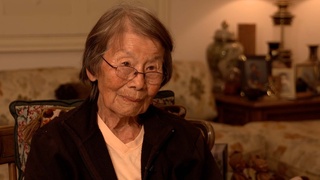Interviews
My father’s business in America (Japanese)
(Japanese) My father’s… My father’s business. Well, it was this restaurant called “U.S. Café,” and it was actually a European food restaurant. There were no such things [back then] as Japanese restaurants, as we have nowadays… (laughs). It was open 24 hours a day. I heard from other people that around the time of World War I…actually, after the war, there was a boom in customers and business was thriving. There were some funny stories—like once they were so busy that the cash register was overflowing with cash, so they had to bring over an empty beer box to toss the money into. Well, that’s how busy they really were. But thereafter, the boom slowly went, you know, down, down, down… By the time I left America, apparently the business wasn’t making much at all. That’s probably why my mother made the decision to return to Japan then. Yes.
Date: June 17, 2008
Location: California, US
Interviewer: Yoko Nishimura
Contributed by: Watase Media Arts Center, Japanese American National Museum

